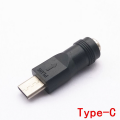I have the release revision (r1.42?) of Rock 5B with 16GB RAM, and finally have time to try it out after a year or so. I want to install openFyde, and am trying it out. uSD card boot is fine, and my SSD (Intel H20) is detected okay. Try the install option, and it ended okay as well. Shutdown, reboot, and it won’t boot from NVMe.
I tried a couple time reinstalling to the SSD (it can see the 32GB / 27GiB Optane portion only, but it is fine) and it won’t help. Eventually, I reflash the SPI with debug console, run Ubuntu Budgie live CD on a spare machine to look into what’s up during Rock 5B boot. It hangs within uBoot, so I just run the “reset” command so to have the boot message show up again, as quoted below:
DDR Version V1.08 20220617
LPDDR4X, 2112MHz
......
U-Boot SPL board init
U-Boot SPL 2017.09-gbf47e8171f4-220414-dirty #stephen (Jun 07 2023 - 17:56:02)
Trying to boot from MMC2
......
Trying to boot from MMC1
......
Trying to boot from MTD2
Trying fit image at 0x4000 sector
## Verified-boot: 0
......
Jumping to U-Boot(0x00200000) via ARM Trusted Firmware(0x00040000)
Total: 500.164 ms
so the boot process is able to load U-Boot from SPI, but then it cannot find anything to boot from…
Model: Radxa ROCK 5B
PreSerial: 2, raw, 0xfeb50000
DRAM: 15.7 GiB
......
Net: No ethernet found.
Hit key to stop autoboot('CTRL+C'): 0
pcie@fe150000: PCIe Linking... LTSSM is 0x1
......
pcie@fe150000: PCIe Linking... LTSSM is 0x2
pcie@fe150000: PCIe-0 Link Fail
Device 0: unknown device
note: the above LTSSM message appeared 40+ times with different values of 0x1, 0x2 and 0xa
Is it the NVMe SSD not properly supported, so the PCIe-0 init failed and Rock 5B thus failed boot from the SSD? I intended to use Intel Optane SSD (either M10 16GB, H20 32GB+512GB, or P1600X 118GB) with my Rock 5B, and I wonder if the current bootloader only support specific NVMe SSDs only at boot? Again, after booting into either openFyde or Debain, there is no problem detecting and using the Optane SSD at all.



